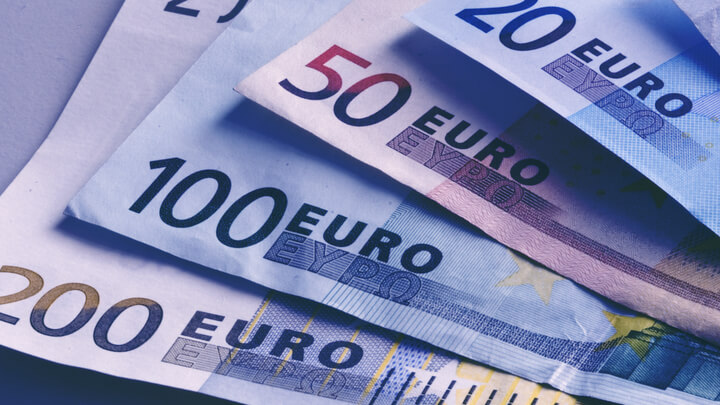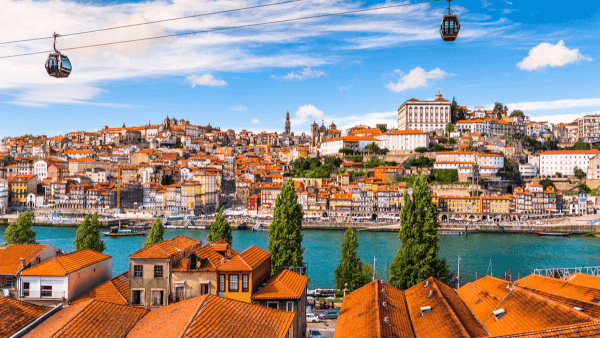Is tap water in Portugal safe to drink? A traveller's guide
Planning a trip to Portugal? Discover if tap water is safe to drink for travellers. This is your guide on Portugal's water quality.

Portugal saw an increase in tourism of 10% in 2015, with 10.18 million foreign visitors. In fact last year was the best ever year for tourism in Portugal with 18 million guests staying at Portuguese hotels. Portugal has fantastic beaches, historical cities and is the home of Port (wine), so it’s no wonder that more and more people are visiting every year.
If you’re planning a trip to Portugal then this guide will tell you everything you could possibly want to know about the currency, the banks and where to get the best exchange rates. We’ll research the essentials for you so you can plan the fun parts of your stay.
Portugal adopted the euro on January 1, 1999, although it didn’t really start to circulate in the country until 2002, and was one of the first waves of countries to join it.
| Category | Details |
|---|---|
| Symbols & Abbreviations | EUR, € |
| 1 EUR | One euro equals 100 cents. |
| EUR Coins | EUR coins come in denominations of 1 cent, 2 cent, 5 cent, 10 cent, 20 cent, 50 cent, €1, and €2. |
| EUR Notes | The Euro is available in seven different note denominations: €5, €10, €20, €50, €100, €200, and €500, and each note has a distinctive colour. |
You can buy currency easily at Bureaus but most banks no longer offer currency exchange. British visitors will get about 2% less for British pounds in Portugal than if they exchanged currency at home. Many places also refuse to exchange Scottish notes.
Most bureaus of exchange are open seven days a week in tourist areas. Beware that some bureaus require a passport for you to exchange currency. However, this practise is increasingly rare.
There’ll always be a charge at bureaus even if they advertise “no commission”. When the fee isn't upfront it’ll be built into the exchange rate. It’s important to find out the real mid-market rate before travelling. This is the real value of a currency, which sits between the buy and sell rates. Knowing this rate can help you calculate how much you're being charged for your currency within a bureau exchange rate. You can find the rate easily via Google or with this handy currency converter.
Most hotels and airports will also offer currency exchange but these rates vary wildly so it’s best to avoid using them except in an emergency.
Make sure that your notes are clean and undamaged, as some places will refuse to accept notes that aren’t in the best condition.
The ATM will often offer you the best rate of exchange for getting currency as these normally apply the commercial rate, which is the real mid-market rate. You’ll normally be charged for withdrawing currency at a foreign ATM though, however, if you withdraw larger amounts at a time you can reduce the impact of the charge. It’s a common misconception that you won’t actually be charged at ATMs because they are a part of the Multibanco network, however, you will still likely incur fees, but from the actual banks and not the network itself.
It’s almost impossible to find a place that’ll exchange travellers cheques in Portugal these days. Shops won’t deal with them at all. It’s strongly advised that you don’t use travellers cheques for your trip to Portugal.
Which isn't a bad thing as the rates for travellers cheques are often unfavourable. Stick to the ATM and using your credit or debit card if you don’t want to carry cash.
Most bank branches in Portugal have automated cash points, Multibanco, as well as most large supermarkets and the main shopping areas in most towns or cities. You’ll also find ATMs at the airport as well as major Railway stations. Euronet cash machines can often be found outside shops and are widely available throughout Portugal. Apparently the Euronet machines don’t charge for withdrawals, however your home bank may still apply a charge.
If there’s a charge for withdrawal and an option to pay the ATM fee in the local currency then always select this option. Dynamic currency (or DCC) allows you to always be able to see how much you’re being charged in your home currency. However, paying in the local currency means your home bank is responsible for the conversion rate and your home bank is more likely to charge you a favourable exchange rate than the ATMs operating bank. It might be tempting to convert the charge immediately using DCC but it’ll probably cost you more.
Like most European countries, ATMs in Portugal will accept credit and debit cards backed by Visa, Mastercard, Eurocard and Maestro. As recent as 2015, places like the Pingo Doce supermarket chain wouldn't accept credit or debit cards for purchases less than €20. That has now changed, but don’t be surprised if you run into limits. In fact, still today many shops will also apply a €10 limit and a lot of small bars will only accept cash. It’s wise to make sure you always have a little cash on you to be safe.
Always make sure you tell your home bank that you’ll be travelling so they don’t put a stop on your card due to suspicious behaviour. Many banks cautiously block cards if they aren't expecting foreign activity.
As mentioned above, Multibanco and Euronet ATM machines are widely available. Multibanco ATMs have a €200 withdrawal limit but you can repeat the withdrawal twice in one day. However, your home banks withdrawal limit will still apply. If you do end up using a Euronet ATM, if your bank has higher limits for you, then it’s possible that you may be able to withdraw more than €200 each time.
You can find the nearest ATM using one of these global ATM locators:
Euronet machines claim to be free for all cash withdrawals but your home bank may still apply a fee. Find out if your bank has an international partner bank in Portugal. It’s often possible to withdraw money for free or a reduced fee at a partner bank. If there’s a withdrawal fee then remember to select to pay in local currency, as above.
If your bank has a partner bank in Portugal then it’s a good idea to seek out ATMs operated by that bank, as explained above.
The largest bank in Portugal is Caixa Geral de Depósitos and is owned by the state. Following closely are private-owned Santander Totta and Banco Comercial Português (Millennium BCP).
But below is a table of the most common retail banks in Portugal:
| Major Retail Banks in Portugal |
|---|
| Banco Comercial Português (Millennium BCP) |
| Novo banco |
| Santander Totta |
| Montepio |
| Caixa Geral de Depósitos |
Alternatively here is a list of foreign banks with branches in Portugal:
| International Banks Operating in Portugal |
|---|
| Eurobic |
| Bankinter |
| BNI Europa |
For simple access to your money abroad, and an even better deal, consider using Wise.
If you plan to open a bank account in Portugal, or know someone who already has one, you can transfer money between your accounts with Transferwise using the real mid market exchange rate. It's a quick and convenient way to get your cash, with no hidden fees.
*Please see terms of use and product availability for your region or visit Wise fees and pricing for the most up to date pricing and fee information.
This publication is provided for general information purposes and does not constitute legal, tax or other professional advice from Wise Payments Limited or its subsidiaries and its affiliates, and it is not intended as a substitute for obtaining advice from a financial advisor or any other professional.
We make no representations, warranties or guarantees, whether expressed or implied, that the content in the publication is accurate, complete or up to date.

Planning a trip to Portugal? Discover if tap water is safe to drink for travellers. This is your guide on Portugal's water quality.